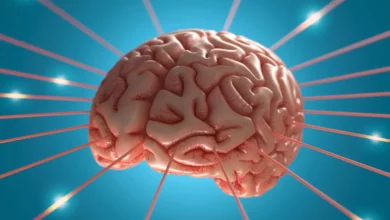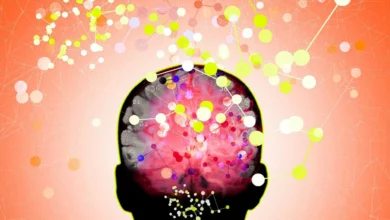Latest Articles
-
Jan- 2023 -10 JanuarySmartphones

Phone Manufacturing: How are Smartphones Made Using Technology
With technology becoming ever more advanced, how are smartphones made? Since their inception in 1994, Smartphones have come a long way. They are used for entertainment, communication, and even medical purposes. Individuals use smartphones to access the internet, download applications, and receive updates. Creating a smartphone requires many components and an incredibly precise process. In this article, you will learn about the steps in making a modern smartphone. The First Smartphones The first “smartphone” was the Simon Personal Communicator, developed by IBM in 1992. This device had a touchscreen, calendar, address book, calculator, world clock, notepad, and even some primitive…
Read More » -
8 JanuaryBrain

A New Approach to Halting the Effects of Aging: Boosting Immune Cells Improves Brain Waste Clearance
Lead Image: Neurodegenerative diseases are conditions that affect the functioning of the brain and nervous system, leading to the progressive loss of structure or function of nerve cells. Some examples of neurodegenerative diseases include Alzheimer’s disease, Parkinson’s disease, and multiple sclerosis. These diseases can cause problems with memory, movement, and overall brain function, and they often get worse over time. The findings in mice suggest a new therapeutic approach to treating Alzheimer’s and other age-related diseases. Many neurodegenerative diseases, including Alzheimer’s and Parkinson’s, are characterized by the presence of harmful protein clusters in the brain. Despite significant efforts to find…
Read More » -
8 JanuaryMaterials Science

99% Efficiency: Princeton Engineers Have Developed a New Way To Remove Microplastics From Water
Lead Image: Microplastics are tiny particles of plastic that are smaller than 5mm in size and are found in the environment, including in water sources. These particles can come from a variety of sources, including the breakdown of larger plastic items, the use of microbeads in personal care products, and the release of plastic fibers during the washing of synthetic clothing. Microplastics have been found in tap water, bottled water, and even in the oceans, and their presence in the environment is a cause for concern as they can be ingested by marine life and potentially enter the food chain.…
Read More » -
8 JanuaryBrain

Alzheimer’s Breakthrough: New Therapeutic Target Found
Lead Image: Alzheimer’s disease is a progressive brain disorder that affects memory, thinking, and behavior. It is the most common cause of dementia among older adults and is characterized by the loss of brain cells and the shrinkage of brain tissue. According to the World Health Organization, Alzheimer’s disease affects about 50 million people worldwide, and this number is expected to triple by 2050. Researchers from the German Center for Neurodegenerative Diseases (DZNE) have discovered that the protein medin co-aggregates with amyloid-β in the blood vessels of the brains of Alzheimer’s patients. Their findings were recently published in the prestigious…
Read More » -
7 JanuaryMental Health

Comprehensive Data on Childhood Leukemia Drug Response Provides a Blueprint for “True Precision Medicine”
Lead Image: In a groundbreaking study, researchers at St. Jude Children’s Research Hospital have collected the most extensive data yet on how different genetic subtypes of acute lymphoblastic leukemia (ALL) respond to various medications. This information offers a roadmap for customizing treatment for each individual patient, paving the way for truly personalized precision medicine. Scientists at St. Jude Children’s Research Hospital are reporting the most comprehensive study to date describing the variations in drug response across different genetic subtypes of acute lymphoblastic leukemia (ALL). The findings provide a blueprint for precision medicine to further individualize therapy. The study will be…
Read More »










